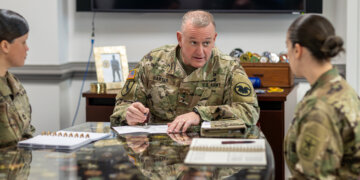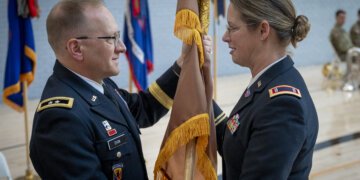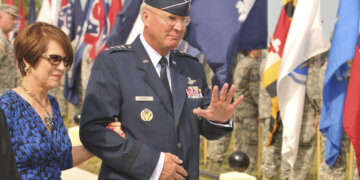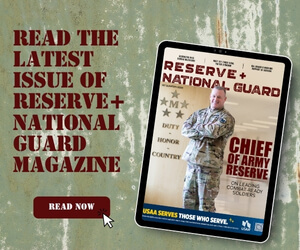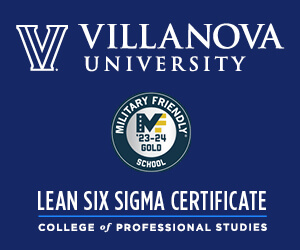Marine Corps Reserve Lt. Col. Ryan Bolling learned early on from his father’s service that the military opens doors to opportunity.
“My dad was in the military but he was a physician, so it wasn’t like he was hardcore military. It was during the Vietnam era. But I think what he took away from that is that it [the military] will provide you with the opportunity to get yourself straight,” Bolling said.
He added it was an opportunity he needed.
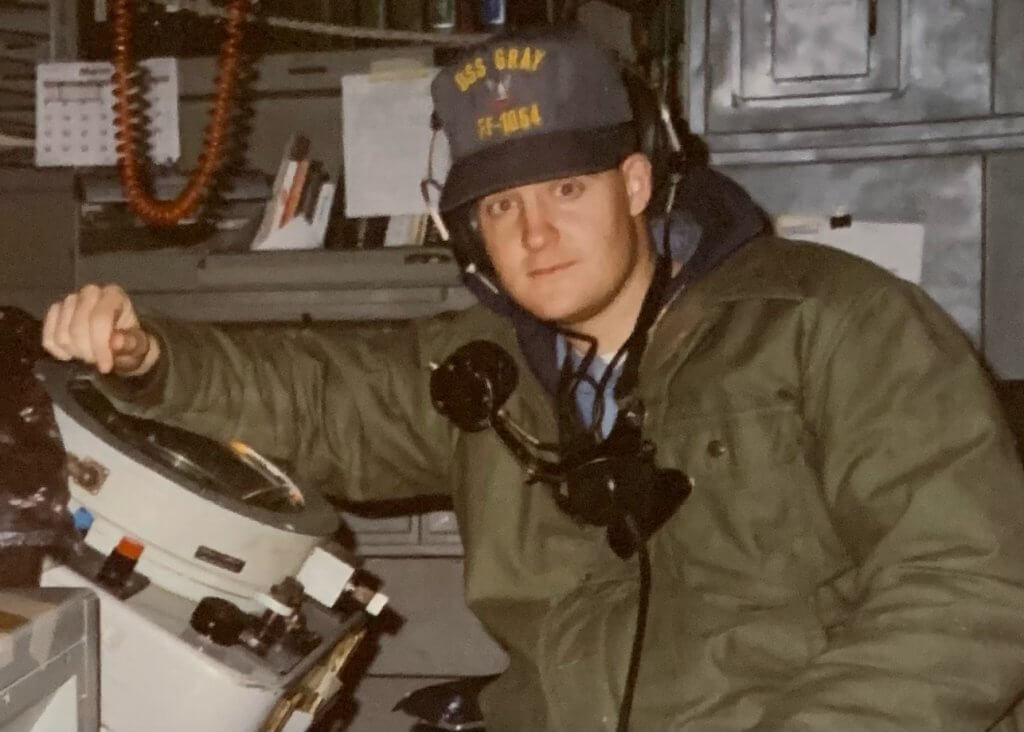
Bolling enlisted in the Navy in 1988 after failing out of his first year of college. His career began on a ship but transitioned to shore duty a few years later, then he became a military police officer. While on active duty, Bolling earned an associate degree and made the decision to go into the reserves after being accepted into the University of Texas. After graduation, he went to law school in Houston. It was there that a friend asked him if he’d ever thought about becoming an officer for the Marine Corps.
Although Bolling initially said he scoffed at that idea – he didn’t think he’d have what it takes to be a Marine – he began running and training with Marines before class.
“I went to OCS between my first and second year and got commissioned. After I graduated, I went on active duty for the Marine Corps,” he said.
His first duty station was Quantico, where he did a lot of legal aid and prosecuted crimes committed on base within Virginia. He left active duty when his commitment was complete, moving back to Texas and joining a firm as a lawyer in Austin.
“I didn’t like the firm. It was different from the practice of law in the military,” Bolling explained.
While living there, he deployed to Iraq with 2nd Battalion, 2nd Marines.
“That was a fantastic opportunity as a lawyer, to be with an infantry battalion. … I got to really experience what it was really like to be a Marine,” he said.

Bolling then spent 10 years at the Pentagon in the office of general counsel. While balancing his civilian career, he stayed in the Marine Corps Reserve through shifting roles and duty stations. Eventually, he was assigned to Marine Forces Special Operations Command at Camp Lejeune to be a Deputy Judge Advocate and deployed to Afghanistan for a year.
“You talk about why you stay in the reserves — it’s the people. The ability to maintain those friendships and relationships, to be able to serve your country and to be able to go with those folks was a fantastic experience,” Bolling said.
When he came back, he taught at Headquarters Marine Corps and now works with IRR Marines.
“We muster them occasionally to make sure they are doing well. We also make sure that they get the resources they need. It’s a good role, to help my brothers and sisters in the Corps,” he explained.
In his civilian career, he works as lead counsel for Walmart. Bolling is also connected with other veterans through the company’s resource group.
“I’m the corporate chair of the associate resource group for veterans which is called Walmart Serves. We are not just for the roughly 200,000 veterans that work for Walmart, but also the families and allies of those folks,” Bolling said. “It’s one of the things I am really proud of.”
The company has been extremely accommodating and supportive of his military service, he said. Since 2013, Walmart has employed more than 320,000 veterans and military spouses as part of a hiring initiative, according to a statement by Brynt Parmeter, Walmart’s Senior Director of Military & STEM Programs.
When it comes to giving advice to those leaving the military, Bolling is quick to tell Marines and other service members not to close any doors.
“By staying in the reserves, it opened a million doors for me throughout the course of my career. It still is,” he said.




















